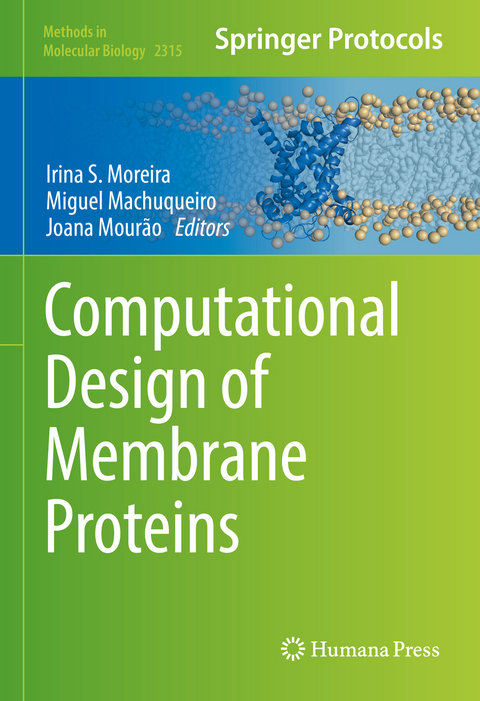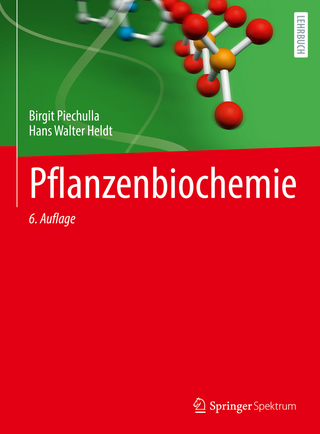
Computational Design of Membrane Proteins
Springer-Verlag New York Inc.
978-1-0716-1467-9 (ISBN)
Authoritative and cutting-edge, Computational Design of Membrane Proteins aims to ensure successful results in the further study of this vital field.
Chapter 4 is available open access under a Creative CommonsAttribution 4.0 International License via link.springer.com.
Guardians of the Cell: State-of-the-Art of Membrane Proteins from a Computational Point-of-View.- Integrating Membrane Transporter Proteins into Droplet Interface Bilayers.- Membrane Protein Engineering with Rosetta.- Engineering of Biological Pathways: Complex Formation and Signal Transduction.p Homology Modeling of Class a G-protein-coupled Receptors in the Age of the Structure Boom.- Interface Prediction for GPCR Oligomerization between Transmembrane Helices.- Memdock: An α-Helical Membrane Protein Docking Algorithm.- Identification and Characterization of specific Protein-Lipid Interactions using Molecular Simulation.- Molecular Dynamics Simulation of Lipid-modified Signaling Proteins.- In silico Prediction of the Binding, Folding, Insertion, and Overall Stability of Membrane-Active Peptides.- pKa Calculations in Membrane Proteins from Molecular Dynamics Simulations.- Poor person’s pH Simulation of Membrane Proteins.- Preparing and Analyzing Polarizable Molecular Dynamics Simulations with the Classical Drude Oscillator Model.- In silico Prediction of Permeability Coefficients.- Identification of Pan Assay INterference compoundS (PAINS) using an MD-Based Protocol.- Transmembrane Anion Transport Mediated by Halogen Bonds: using Off-Center Charges.
| Erscheinungsdatum | 30.07.2021 |
|---|---|
| Reihe/Serie | Methods in Molecular Biology ; 2315 |
| Zusatzinfo | 53 Illustrations, color; 4 Illustrations, black and white; XI, 290 p. 57 illus., 53 illus. in color. With online files/update. |
| Verlagsort | New York, NY |
| Sprache | englisch |
| Maße | 178 x 254 mm |
| Themenwelt | Naturwissenschaften ► Biologie ► Biochemie |
| Naturwissenschaften ► Biologie ► Mikrobiologie / Immunologie | |
| ISBN-10 | 1-0716-1467-3 / 1071614673 |
| ISBN-13 | 978-1-0716-1467-9 / 9781071614679 |
| Zustand | Neuware |
| Haben Sie eine Frage zum Produkt? |
aus dem Bereich


